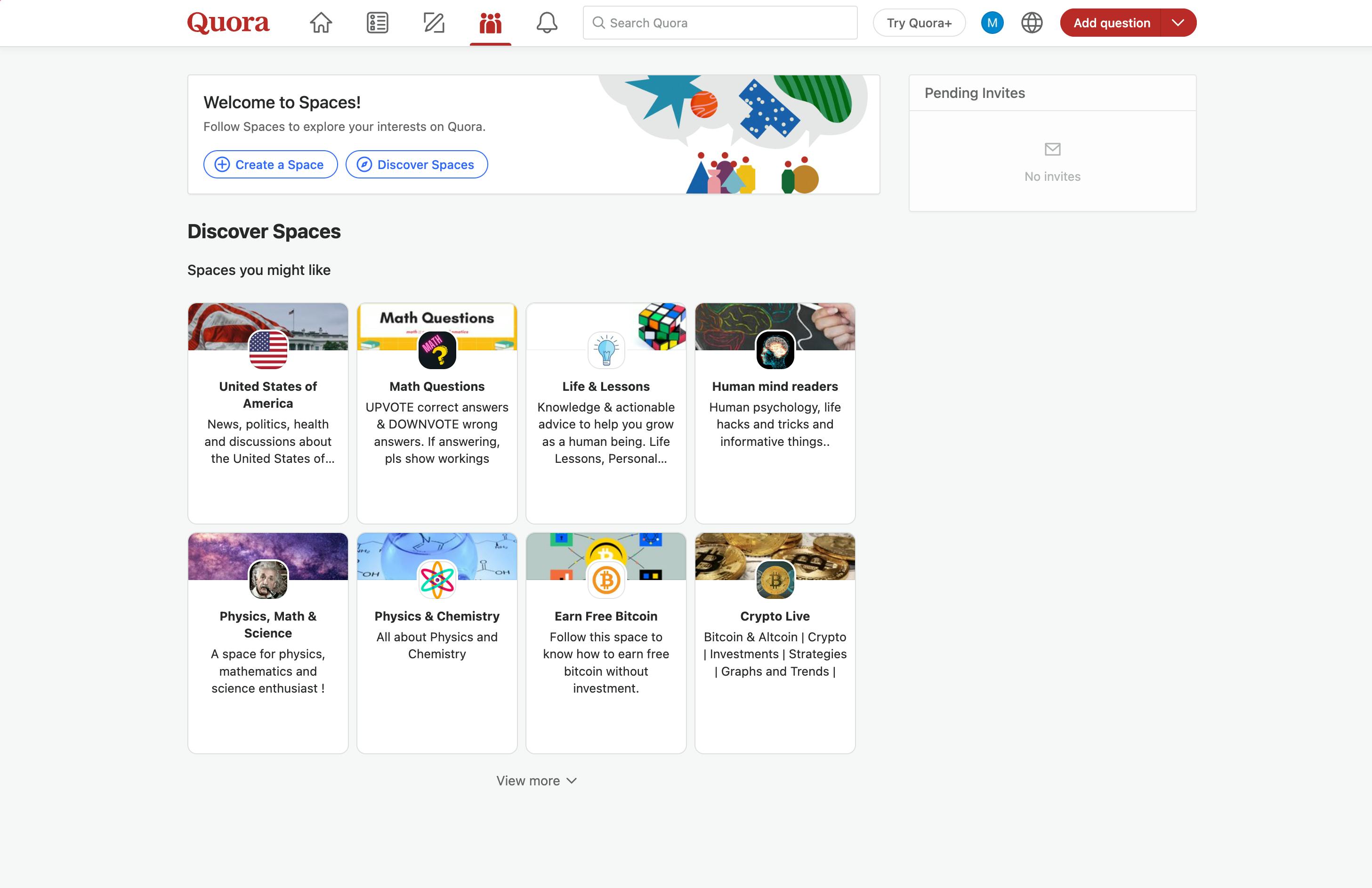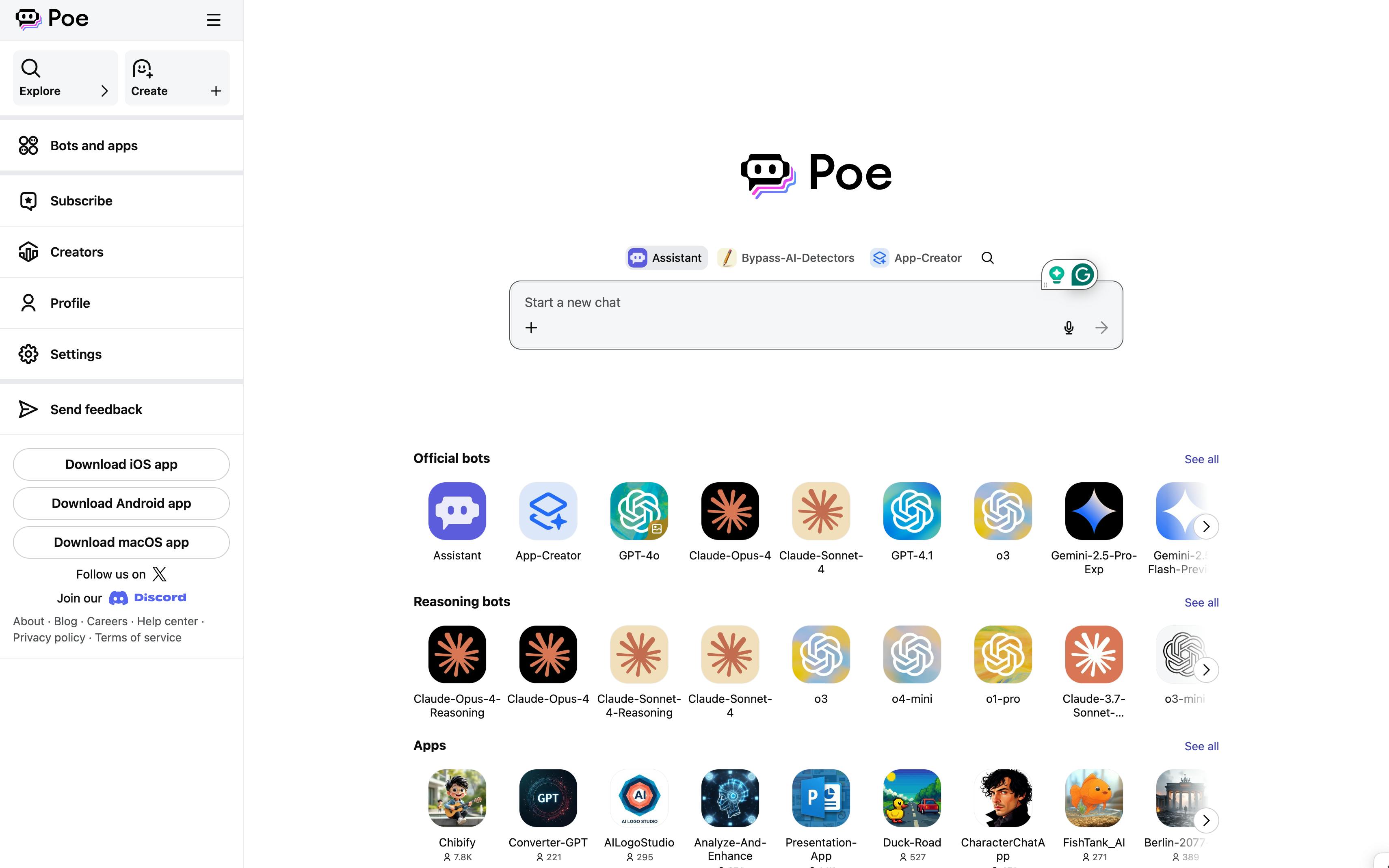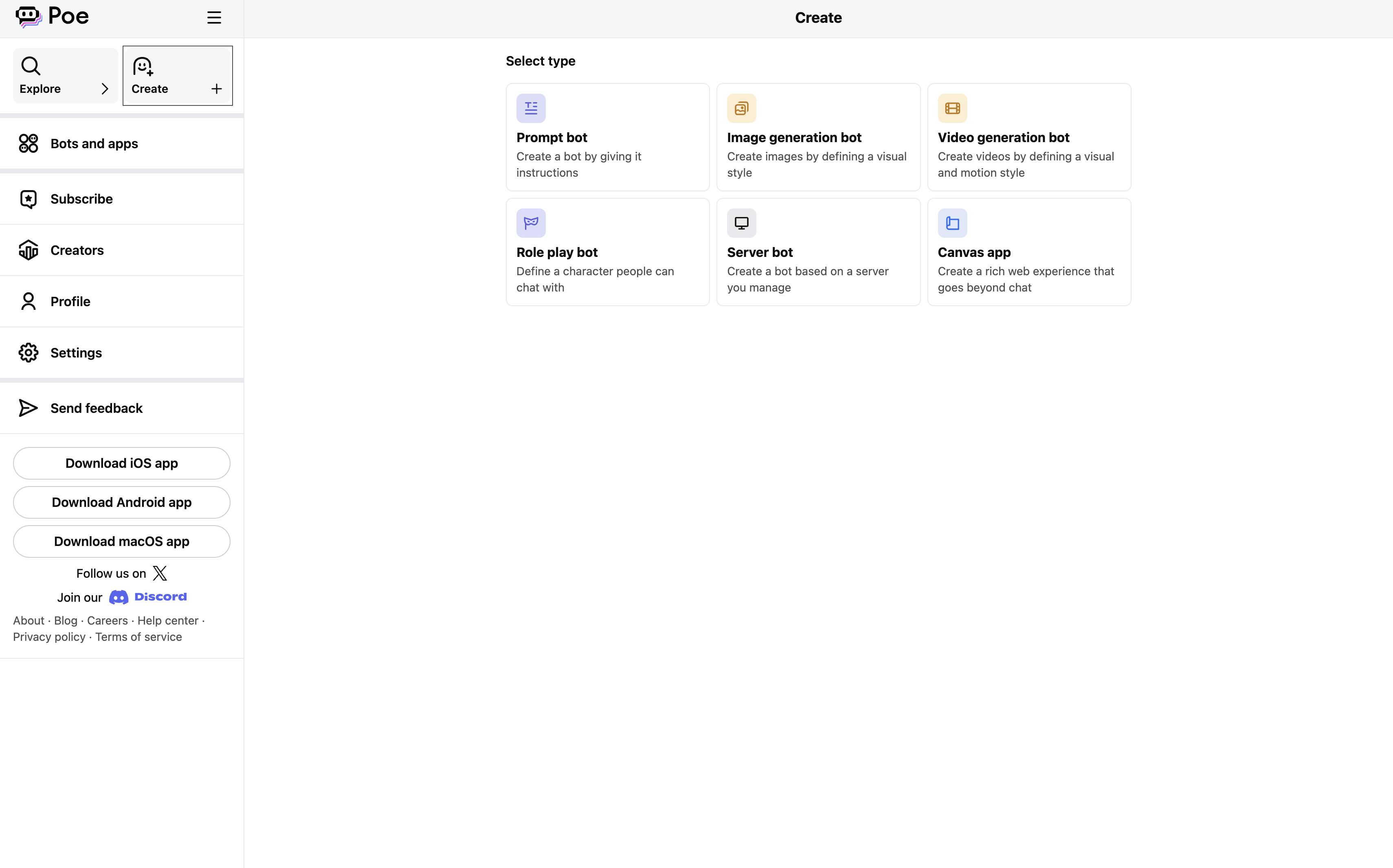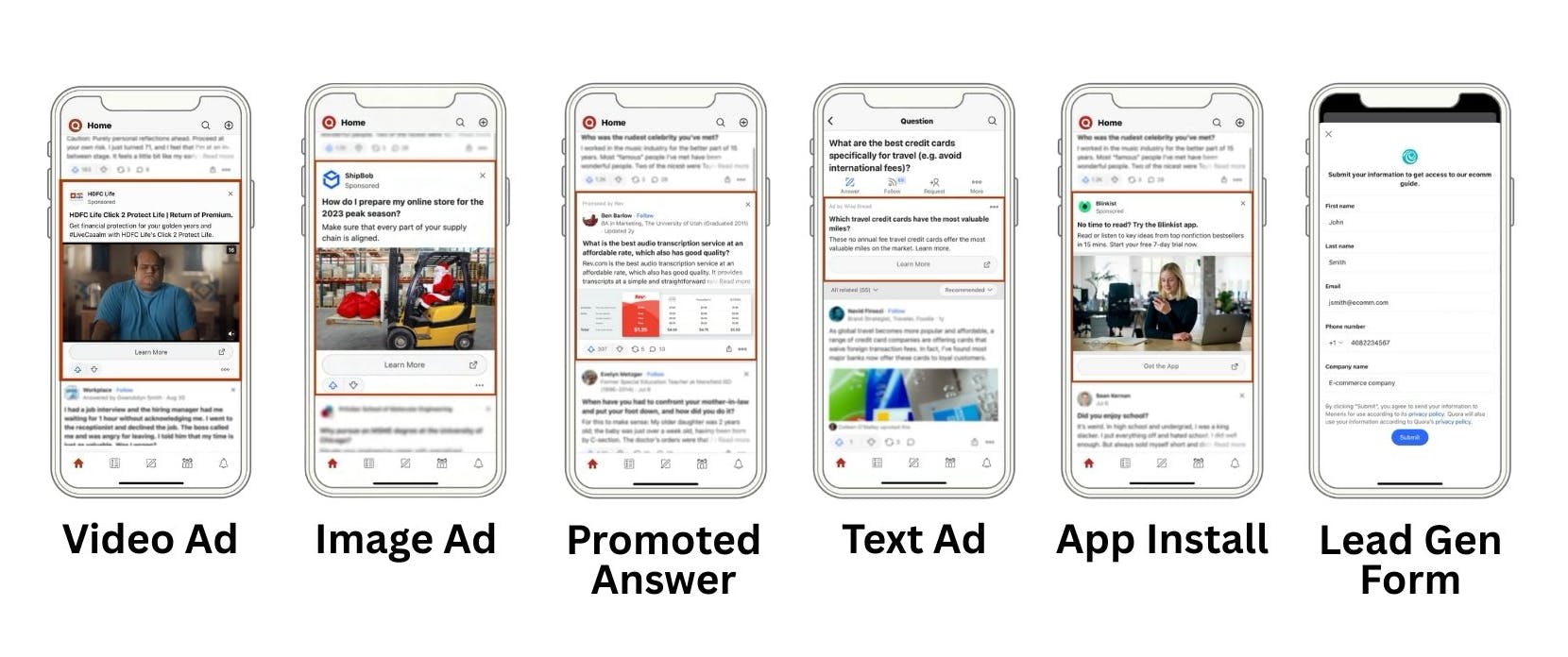Thesis
Asking and answering questions online has become central to the way people leverage the internet to learn, work, and make decisions. As of April 2025, digital-first learning and community-based knowledge sharing compose an increased share of how information is disseminated. People are specifically moving away from static, one-way content and instead prefer answers that are personalized to their questions, come from trustworthy sources, and allow for real-time follow-ups or back-and-forth. The market for question and answer (Q&A) platforms that enable these kinds of interactions is expected to nearly double by 2031, as more users look for fast, context-rich answers and meaningful online discussions.
As of August 2025, this shift in preferences has been accelerated by the rise of mobile internet use, which allows for more real-time web-based interactions, and the rise of artificial intelligence chatbots, which often provide answers via conversations with users. As of May 2025, 64.4% of all web traffic comes from mobile phones, an order of magnitude increase compared to 2011 when this figure was only 6.1%. An increasing share of consumers’ time online is spent interacting with AI chatbots as of August 2025, with 34% of Americans using LLM chatbots at least once a day as of March 2025. These chatbots converse in full sentences, requiring users to type out full questions in exchange for more nuanced and contextualized answers. At the same time, new business models, like paid access to experts, are changing how knowledge is valued and shared online. As of November 2022, the expert network industry was valued at $2 billion, crediting growth to both an increasing number of experts willing to contribute and platforms facilitating connections. Users and employees of the expert network industry have speculated that expert networks may evolve to be largely facilitated by existing platforms for information sharing or networking.
Quora is an online Q&A platform with more than 400 million monthly users around the world as of 2025. Quora’s primary product is a forum for users to submit questions to be answered by those with relevant experience or expertise. Quora also provides personalized information recommendations, paid expert marketplaces, AI search tools, and summary digests featuring content from specific topics.
Founding Story
Quora was founded in 2009 by Adam D’Angelo (CEO) and Charlie Cheever. Prior to starting Quora, D'Angelo was the Chief Technology Officer and VP of Engineering at Facebook. Cheever worked as a Software Engineering Manager at Facebook and in engineering at Amazon.
During their time together at Facebook, D’Angelo and Cheever identified a gap in the online Q&A market: existing platforms were plagued by low-quality responses, lacked verification for field experts who could answer questions reliably, and which users found to be fragmented and unreliable. D’Angelo and Cheever envisioned a platform where individuals could find answers to questions across various topics on one site, as opposed to topic-specific forums, one-way information blogs, or platforms like Yahoo! Answers, where content was inconsistently moderated and often of low quality. Over time, this vision grew to include structured moderation, a reputation system, and a personalized feed that enables users to follow topics and contributors.
Cheever and D’Angelo recruited Rebekah Cox, a top designer they knew from Facebook, and Kevin Der, an engineer, to join their founding team. The team adopted an iterative development approach, continuously refining the platform based on user feedback and data analytics. Quora launched in private beta in December 2009, primarily open to friends and former colleagues from Facebook and other tech circles, a strategy they hoped would seed the platform with high-quality content from the outset. In March 2010, the company received $11 million in first-round funding from Matt Cohler of Benchmark Capital, a former Facebook executive. The platform launched publicly in June 2010 and gained initial traction in the tech industry as industry leaders like Facebook co-founder Dustin Moskovitz answered user questions directly.
In May 2012, Quora raised a $50 million Series B funding round, which included a personal investment of $20 million from Cheever. In September 2012, Cheever stepped back from his daily responsibilities at Quora to assume an advisory role. As of August 2025, D’Angelo has remained with the company as CEO. Quora hired Court Showerman as CFO in 2014 and Vinay Pandey as Chief Revenue Officer in 2021.
Product
Core Platform
Quora’s primary product is its Q&A platform, where users can post questions on virtually any topic and receive answers from a global community. Users can upvote or downvote answers based on quality, ensuring that the most helpful content rises to prominence. While users can see a fixed number of pages or responses to questions without an account, full site access requires signing up as a Quora member as of August 2025.
The platform leverages algorithms to influence what content users see by curating a personalized feed based on their activity, followed topics, and engagement history. The home feed provides tailored question recommendations based on user interests, and the Discover tab exposes users to new topics and communities they might enjoy. This personalization enhances engagement by aligning content with individual preferences.
When Quora was originally launched, the platform required users to set up accounts using their real names and encouraged users to build detailed profiles that showcase their professional backgrounds and areas of expertise. Quora’s goal with this policy was to lend credibility to the shared content and attract contributions from industry leaders, academics, and professionals. It was, however, still possible to engage with content anonymously until March 2017, when this functionality was removed. In April 2021, Quora reversed its policy requiring users to register until their real names, allowing pseudonyms for users “who are not willing or able to contribute using the name they are known by at school, professionally, or in their community” while still noting that they “expect most people will continue to use their real names”.
Quora+
Introduced in September 2021, Quora+ is a subscription to a premium version of the site that removes advertisements and allows users to access creator content available only to subscribers. Content creators then receive a portion of the revenue from Quora+ subscribers viewing their content. As of August 2025, Quora+ costs $6.99 per month or $47.88 per year. Some users have criticized the company for making highly rated answers visible only to Quora+ subscribers but only compensating creators for views that came from their followers, not the entirety of Quora+ members.
Spaces
Quora Spaces, introduced in November 2018, allow users to create topic-based communities for sharing and organizing content. Spaces function as collaborative forums where contributors can post Quora answers, external links, and other material relevant to the topic. The feature is designed to support ongoing discussion and content curation within specific areas of interest.
Spaces are managed by owners who curate both contributors and content. Within each Space, contributors can share original posts, links, and answers that relate directly to the Space’s theme, while followers engage by reading, commenting, and sharing the content. Only approved contributors are allowed to post directly to a Space, which helps maintain high-quality, focused discussions.

Source: Quora
Quora Spaces previously offered monetization options for Space curators such as Space Subscriptions and Ad Revenue Sharing, but these programs were discontinued in November 2024. Currently, creators can monetize their content through Quora's subscription service, Quora+. Creators earn a share of the revenue based on the engagement their content receives from Quora+ subscribers.
Platform for Open Exploration
Quora’s “platform for open exploration”, Poe, is a chatbot platform built by Quora, launched in December 2022, that gives users access to multiple LLMs from providers including OpenAI, Anthropic, Meta, and Stability AI. Users can interact with models such as GPT-4, Claude, Llama, and Stable Diffusion to explore a range of topics and use cases. As of February 2025, the interface supports side-by-side comparisons of model responses, helping users evaluate different outputs for relevance and accuracy.

Source: Poe
As of August 2025, Poe also allows users to create custom chatbots without requiring coding experience. By setting structured prompts or instructions, users can tailor bots for specific purposes such as content generation, customer support, or research. Developers can build server-based bots using Poe’s API for more advanced use cases. Custom bots can be shared publicly within the Poe community or used privately.

Source: Poe
Since launching, Quora has introduced features aimed at expanding how users interact with AI models using Poe. Launched in July 2024, Previews allows users to create interactive web applications, such as visualizations or simple games, within chatbot conversations. It supports collaboration between different models, including Llama 3 and GPT-4o, and can incorporate content from uploaded files, including videos. These applications can be shared with others through a link.
In February 2025, Poe Apps was launched, allowing users to design and share AI-driven applications. Through the App Creator tool, users can describe the desired application by specifying particular models or providing general specifications. The tool uses Claude 3.7 Sonnet to interpret user instructions and generate the app’s interface, writing custom behaviors in the tool using JavaScript. These applications can either complement the chatbot experience or run independently as visual tools, with the option for users to review and edit the generated code directly.
Market
Customer
As of August 2025, Quora has over 400 million monthly active users worldwide. The United States accounts for the largest share (around 148 million users, or 38%), followed by India, the UK, Canada, and Australia. 57% of users are male, and the plurality, 30%, of users are in the 25–34 age group, with 18-24 year-olds comprising the second largest share. As of August 2025, 65% of Quora users hold a college degree, 28% have a graduate degree, and 54% report household incomes above $100K. As of August 2025, Quora has not said what share of its monthly active users are subscribers to Quora+.
Quora’s advertising customers are largely B2B and B2C companies targeting educated, higher-income users. While Quora does not publicly disclose its advertising partners as of August 2025, the company said in 2019 that B2B firms make up about 60% of Quora’s advertisers and use the platform for lead generation, brand visibility, and targeted outreach. In February 2025, Quora partnered with Bombora, an advertising audience segment data firm, to help advertisers run account-based campaigns based on job title, seniority, and industry. Quora also allows companies to create Business Profiles, enabling them to participate in discussions and connect with users under their brand name. As of August 2025, brands that have used Quora for advertising include Monday.com, Sprite, and Crunchbase.
Market Size
Quora operates within the social media and digital advertising sectors. The global social media market is valued at $286.5 billion as of 2025, and is projected to reach $466.6 billion by 2029, growing at a 13.3% CAGR. Quora’s total addressable user market continues to expand as global internet adoption increases annually, as of August 2025.
As of August 2025, social media advertising alone is expected to exceed $250 billion by 2026, while the broader digital advertising market is forecast to surpass $710 billion globally in 2026. Quora has introduced new ad formats, including video, and partnerships with measurement and brand safety providers to further support its ability to compete for a growing share of digital advertising budgets.
The global AI chatbot market, which includes platforms like Poe, is projected to grow from $11.1 billion in 2025 to $31.1 billion in 2029, reflecting a CAGR of 29.5%. This expansion is driven by numerous factors, including the increased adoption of AI technologies, the rising need for automated customer support, advancements in natural language processing, and the growing demand for personalized digital experiences. Analysts expect this market to continue growing as businesses and consumers increasingly turn to AI-powered virtual assistants and chatbots for a range of applications, from customer service to entertainment.
Competition
Reddit: Founded in 2005 by Steve Huffman and Alexis Ohanian, Reddit is a social media platform hosting user-generated content across numerous communities known as "subreddits." The platform allows users to post content, engage in discussions, and vote on posts and comments. Reddit raised approximately $1.3 billion over seven funding rounds from investors including Fidelity Investments and Sequoia Capital. The company went public in March 2024, and as of August 2025, it has a market cap of $37.9 billion.
Reddit and Quora differ in their primary functions and user engagement: Reddit is a forum for sharing and discussing content across various topics, while Quora focuses on a question-and-answer format for detailed, expertise-driven responses. Additionally, Reddit allows for user anonymity, whereas Quora encourages real identities to enhance credibility and professionalism. In December of 2024, Reddit launched Reddit Answers, a generative AI feature that synthesizes responses from real Reddit discussions. Users can ask questions in plain language and receive concise summaries with links to original threads, blending Reddit’s forum model with a more direct Q&A experience.
Stack Exchange: Founded in 2009 by Jeff Atwood and Joel Spolsky, Stack Exchange is a network of Q&A websites, each dedicated to specific, primarily technical, topics ranging from mathematics and cooking to gaming and more. Each site within the network is populated by users asking questions, providing answers, and engaging in discussions.
The most notable site within the Stack Exchange network, coding site Stack Overflow, has raised a total of $153 million as of 2025, with notable investors like Union Square Ventures, Bezos Expeditions, GIC, and Silver Lake Waterman. Stack Overflow was acquired by Prosus for $1.8 billion in 2021. Stack Exchange and Quora are both Q&A platforms but differ in structure: Stack Exchange is a network of specialized communities with strict topic guidelines to keep discussions focused, whereas Quora is a single platform that covers a broad range of topics, allowing for more general conversations.
Zhihu: Launched in 2011, Zhihu is a Chinese question-and-answer platform that enables users to create, answer, and edit questions across a wide range of topics. The platform raised approximately $900 million over seven funding rounds, including notable investors like Tencent and Goldman Sachs. Zhihu went public in March 2021 (NYSE: ZH) and, as of August 2025. has a market cap of $390 million. Zhihu’s structure is similar to Quora’s, offering paid memberships such as "The Reading Club" and "The Salt Elected Membership" for exclusive content, alongside generative AI tools like "Zhida.ai" that enhance content quality and user engagement. Zhihu also hosts features like live streaming, guest panels, and expert consulting services for hire.
Answers.com: Launched as GuruNet in 1999, Answers.com is a platform where users can ask and answer questions on a wide range of topics. It has evolved over time, rebranding to Answers Corporation in 2005 and adding features like community content and curated reference materials. As of 2025, the platform has received funding from investors like TA Associates, Summit Partners, and Redpoint Ventures, totaling $384 million across seven funding rounds. In 2014, Apax Partners acquired Answers.com. In 2022, Answers.com was purchased by digital media company System1, a digital media company that continues to operate the site as of August 2025. While both Answers.com and Quora are knowledge-sharing platforms, Answers.com emphasizes curated reference materials, while Quora focuses on personalized, expert-driven responses and discussion.
AI Competitors
As internet users grow more accustomed to conversational interfaces with the rise of AI chatbots, the way people search for and consume information is shifting. AI chatbots like OpenAI’s ChatGPT, Anthropic’s Claude, and Google’s Gemini have become a new form of competition for Quora. While Quora relies on a community of users to answer questions over time, these tools provide immediate responses across a wide range of topics based on a corpus of training data.
Business Model
Quora operates primarily on a freemium model, generating revenue through advertising and premium subscriptions. The platform makes money by supporting targeted advertising solutions and offering subscriptions for full usage of the Poe model comparison tool and Quora+, an ad-free version of the site.
Advertising
Quora’s advertising platform is a core part of its business model, allowing organizations to reach users who are actively searching for information related to their business. The platform supports multiple ad formats tailored to different marketing objectives and engagement styles.
Video Ads allow brands to share short-form video content, typically in-feed, that can be reused from other platforms to provide product overviews or explainers.
Image Ads introduce visual elements into Quora’s primarily text-based environment and are commonly used in awareness campaigns.
Promoted Answers let businesses publish long-form responses similar to organic answers and promote them for visibility, often to explain product use cases or share detailed insights.
Text Ads aim to be minimalist and blend seamlessly into the reading experience, providing a cost-effective alternative for advertisers.
App Install Ads are geared toward mobile marketers and link directly to app store listings.
Lead Gen Forms enable advertisers to collect user information, such as emails or sign-ups, directly within the platform, eliminating the need to redirect users to an external site.
Quora’s ad platform is marketed on the merits of its contextual targeting capability, which allows advertisers to position their ads alongside relevant content that matches user intent, such as specific questions or topics, enabling more precise engagement with niche or intent-driven audiences. Advertisers also benefit from tools like keyword targeting, topic targeting, audience targeting, and demographic filters, offering granular control over ad delivery and reach.

Source: Quora, Contrary Research
Quora+
In 2011, when asked whether he had considered whether creators would ever be remunerated on Quora, Adam D’Angelo stated that it was “definitely within the set of possibilities”. Nearly 10 years later, Quora+ was launched in 2021 as a subscription service aimed at enhancing the platform’s content quality while providing creators with monetization opportunities. Subscribers gain access to exclusive content, typically in-depth answers and posts, that creators have chosen to place behind a paywall.
Quora+ is priced at $6.99 per month or $47.88 annually. In addition to premium content, subscribers experience Quora ad-free. Here’s how Quora described the service in their announcement post, answering the question “What is Quora+”?
It’s the new way to show your support for your favorite writers on Quora! When you subscribe to Quora+, $5 goes into a pot which is divided up at the end of the month among all the creators you’ve engaged with, according to how much attention you've given to each. It's basically tipping on auto-pilot, and you get a snazzy red star to show that you are a supporter of great writing on Quora.
Creators are paid based on how much their subscribers engage with their content — if a subscriber reads or spends more time on a specific creator’s work, that creator gets a larger share of the subscription revenue. Quora uses an algorithm for “adaptive paywalling” for non-subscribers, which determines whether a given user should be granted or denied access to monetized content on a case-by-case basis. This allows creators to grow their audience more effectively than a traditional paywall would.
Poe
Poe’s business model centers on monetizing user interactions with AI chatbots through a combination of subscription plans and usage-based pricing. Users pay to access the platform through subscription tiers, which, as of May 2025, range from $5 per month for 10,000 daily points to $250 per month for 12.5 million points. These points are used to send messages to bots, including advanced models like GPT-4.5 and Veo 2. A free plan is also available with limited daily usage.
Bot creators can also set per-message prices and earn revenue in dollars each time a user sends a message, while Poe retains a portion of the revenue collected in points or fees. In addition, Poe offers a revenue-sharing program where creators receive up to $20 for each user who subscribes through their bot, along with access to detailed analytics to help optimize performance. With creator payouts reaching into the tens of millions annually, this dual approach incentivizes high-quality content, promotes ecosystem growth, and supports the platform’s long-term scalability.
Traction
Quora’s monthly active user base has grown from 300 million in 2018 to over 400 million by 2025. In April 2025, the platform saw around 506 million visits, including both repeat visitors and users who were not logged in. As of 2022, Quora users spend over four minutes per session on average. As of August 2025, the site offers content in 24 languages and covers over 300K topics. Mobile use accounts for about 75% of all visits.
Quora has monetized its platform through advertising and Quora+. In 2023, the company generated $20 million in revenue, with a revenue-per-employee of approximately $100K. Its advertising tools have been adopted by thousands of businesses, with some advertisers reporting conversion rates up to four times higher than on other platforms. Partnerships like the integration with Improvado have added value for marketers by allowing more advanced cross-channel analytics and reporting.
Poe has also grown quickly since its launch. As of October 2023, the Poe app had been downloaded over 18 million times and reached more than 1 million monthly active users, establishing a foothold in the competitive generative AI and chatbot market.
Valuation
As of August 2025, Quora’s most recent funding round took place in January 2024, when it raised $75 million from Andreessen Horowitz, valuing the company at approximately $500 million. This was Quora’s first funding raise in nearly seven years and marked a pivot in strategy, as the funding is intended to accelerate the growth of Poe, Quora’s AI chatbot platform. According to CEO Adam D’Angelo, the majority of the funds will go toward paying Poe creators, helping Quora attract talent, and differentiating Poe in a crowded AI landscape. Notable investors in the round and previous rounds include Andreessen Horowitz, Collaborative Fund, Tiger Global Management, Y Combinator, Matrix, and Founders Fund. In total, Quora has raised $301 million as of May 2025.
Key Opportunities
AI-Powered Personalization and User Experience
The integration of artificial intelligence and machine learning is continually altering how and where users interact with Q&A-based information as of August 2025. Quora’s use of behavioral and engagement data in training its own AI recommendation system enables it to prioritize more relevant content, supporting higher user retention and repeat engagement. Quora also uses AI to monitor community standards by detecting fraud or troll users, determining when banned users are operating under pseudonyms, and removing problematic content.
The Creator Economy and Monetization for AI Developers
The growth of the generative AI sector has opened up new opportunities within the broader creator economy. Poe, Quora’s AI chatbot platform, allows developers to build, launch, and generate income from custom chatbots powered by established AI models. With millions of users and over a million bots created, Quora is developing a system where developers can earn money through subscriptions, usage-based pricing, or by enabling user actions that lead to monetization. This setup mirrors established app store models and provides an incentive for ongoing development, especially for individual developers or small AI teams without large-scale distribution channels. Quora’s recent $75 million funding round for Poe highlights its intent to expand the platform, with much of the funding aimed at paying creators and accelerating product updates. As AI use cases broaden and the need for tailored, interactive bots increases, Poe could become a key platform for AI services, offering value to both developers and users.
Key Risks
Data Security and Privacy Vulnerabilities
Data security remains a major concern for Quora, highlighted by the 2018 breach that exposed personal information, including email addresses, job titles, and private messages from over 100 million users. Breaches like this reduce user trust and can lead to serious reputational and financial consequences. As Poe and other AI-based services handle larger amounts of sensitive user data, the potential risks increase. These include higher stakes data leaks, privacy violations, and difficulties keeping up with changing regulations. AI systems, including large language model platforms like Poe, are also exposed to new threats, such as unintentional information disclosure, data poisoning, or misuse of integrated third-party tools.
Algorithmic Content Quality and Community Erosion
Quora’s growing dependence on algorithms to curate content has introduced challenges related to content quality and community engagement. As algorithmic systems increasingly decide which answers are shown to users, there has been a noticeable shift toward attention-grabbing or AI-generated responses, often at the expense of well-informed, expert contributions. This trend has reduced the perceived value of the platform and caused some expert users to disengage, weakening the overall quality of discussion. The inability of current AI systems to distinguish between authoritative information and plausible-sounding misinformation further exacerbates the problem, potentially undermining Quora’s reputation as a trusted knowledge platform. If these issues are not addressed, they could lead to higher user attrition and a weakening of Quora’s position as a reliable source of knowledge.
Summary
Quora began as a high-quality Q&A platform that has since expanded into a broader destination for structured knowledge-sharing and AI-powered interaction through Poe. Its key differentiator from similar sites has been its emphasis on real-identity participation and expert contributions. With over 400 million users as of August 2025, Quora continues to attract strong engagement, particularly from well-educated and higher-income users, and is now positioned as both an advertising platform and a distribution channel for generative AI applications.
As Poe scales and monetization tools for developers expand, Quora faces strategic decisions about product direction, content integrity, and long-term defensibility. The company’s core challenge will be maintaining trust and quality while operating at scale, especially in a competitive environment that includes Reddit, Stack Exchange, and emerging AI-native platforms.





